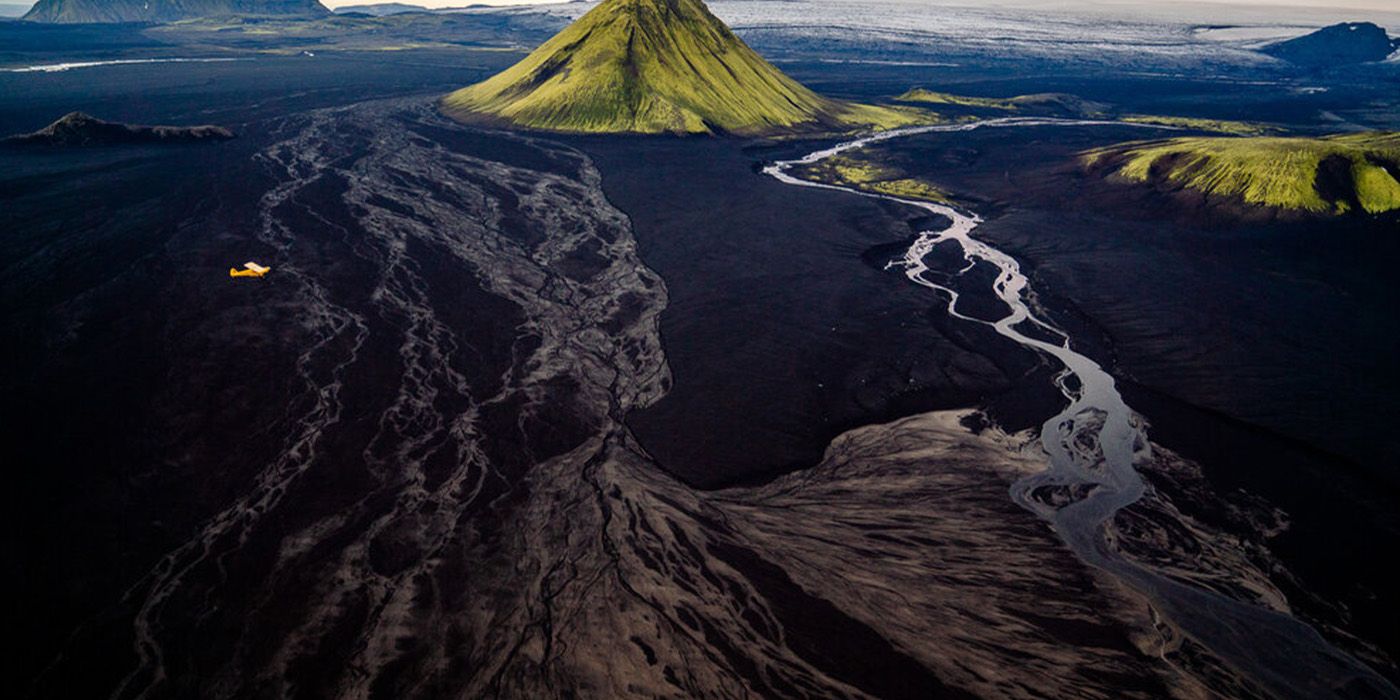In the hands of a lesser filmmaker, Jennifer Peedom’s River would simply be the cure for insomnia. Pop it on and listen to classical music and Willem Dafoe’s narration over gorgeous images of flowing rivers. But rather than be soporific, River is a mesmerizing call to arms as Peedom shows not only the beauty of our rivers but also how they function in the larger ecosystem. In its scant 75 minutes, River manages to be historical, ecological, and philosophical about these natural wonders in a way that never feels maudlin. Utilizing gorgeous footage of these rivers to their maximum effect, River will make you rethink your relationship to the natural world while also never being overbearing. Like its namesake, River changes you consistently, gradually, and permanently.
River plays out with an incredibly loose “narrative” charting where rivers start, where they flow, and where they end before being siphoned up into the atmosphere and released back into the world. There are also explanations (all provided by Dafoe’s soothing narration) of how rivers have shaped our world, our cultures, our populations, and how we in turn have shaped rivers to our own ends, and arguably to our detriment.
That may not sound like much of a movie, but Peedom makes it a feast for the senses with the stunning footage she’s assembled coupled with gorgeous music played by the Australian Chamber Orchestra. This is a movie you sink into, but it always leaves you alert. I was surprised at how at no point was I lethargic despite the soothing images unfolding in front of me. Instead, I was entranced and drawn in further. Peedom wisely doesn’t rely on talking heads or anything to break the flow of her film. River thus becomes not only a subject but also a filmmaking ethos, a way to carry the viewer to the points Peedom wants to make, and while the script does make those points directly, they’re never made as forcefully as the images we see before us.
One might think that when the film starts exploring pollution and the damage we’ve done to rivers that the film would turn into agitprop, but Peedom keeps her movie slow and steady, having Dafoe calmly narrate, “There’s always a downstream cost.” It’s a movie that never feels the need to raise its voice, and that control makes what it has to say all the more powerful. Peedom also doesn’t ignore the double-edged sword and that sometimes there are no easy answers. Yes, damming a river can bring electricity to places that need it, but that will cause stagnation and environmental damage. But every argument the film makes is always made more visually than vocally. If ever a film showed the value of showing instead of telling, River demonstrates that essential filmmaking lesson.
River is a poetic argument made potent. It uses imagery and personification to make its points come alive. Rather than a dry scolding about the importance of our natural resources, River invites us in and shows us why this ecology is not only beautiful but vital. The ecological dance depicted is both sublime and divine, and through its God’s-eye-view, we gain a new perspective on our world and what we owe to it.
Rating: A
River is playing as part of the 2021 Telluride Film Festival. It does not currently have a release date.

